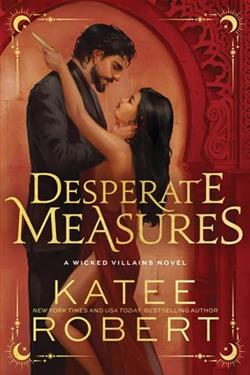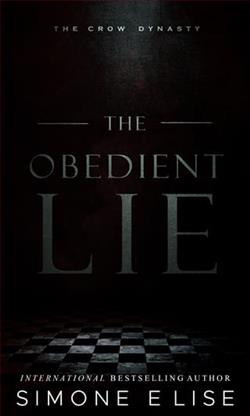Page 5 of I Do, I Do, I Do
Herr Bosch took the spoon from Clara’s hand and made a shooing motion. “Out, out, out.” But his voice expressed no pleasure with their customary banter. “I cannot bear that you are leaving tomorrow,” he added in a low tone meant for her ears alone. Absently, he patted the pockets of the starched white tunic he wore over white trousers. “I’ve been waiting for you. Come outside with me.”
To her knowledge, Herr Bosch had never left the kitchen this close to serving time.
They stepped outside the back door, walked around the kitchen garden, then stood beneath the shade of a spreading maple, where they could see the road and the stage when it arrived.
Herr Bosch lit a cigar and waved out the match. “You’re making a mistake, Clara.”
“What’s done is done,” she said with a shrug. “I know Papa wouldn’t have approved, but the time is right to sell. The railroad passed us by, and if you ask me, I think horseless carriages will eventually put the stage out of business. Then where will the guests come from?”
“You know that isn’t what I meant,” he said, glaring at the end of his cigar. “I meanthim. It’s a mistake to leave everything behind and go running off after that husband of yours. He isn’t treating you right. Not a single letter since he’s been gone? Is this how a man treats his new bride?”
“I haven’t written to him,” she answered lightly. Even if she knew where to address a letter, she wasn’t much for writing. Clearly, her husband wasn’t either.
“I’ll never understand why you chose him. Together you and I could have built the inn into an attraction so grand it wouldn’t matter about the railroad or the stage.”
Bosch, like all her suitors, had really wanted to marry the inn. She was merely the workhorse who came with the inventory.
Curious, she closed her eyes and lifted her face. “What color are my eyes?”
“What?”
“My eyes. What color are they?”
“They’re…black?”
She knew he was annoyed and frowning before she looked at him again. “Light brown.” An unusual shade, near the color of coffee with cream. Certainly not black.
Her husband would have answered correctly and without hesitation because he was the only man who had looked at her and seen a woman instead of the owner of a prosperous inn.
The first thing Jean Jacques had said when he approached the registration counter was, “Mon Dieu!Never have I seen such beautiful skin!”
No one had ever said anything remotely similar to Clara Klaus. The compliment was so amazing, so enthralling, that she didn’t care that it was delivered in a French accent. In fact, she had secretly yearned to meet a Frenchman. Her German parents had despised the French so much that anything French seemed mysterious, exotic, thrillingly forbidden. And suddenly, a handsome Frenchman was standing before her, admiring her skin and looking at her in a way that made her feel hot and funny inside, looking at her as if she were the most dazzling creature ever to appear before his eyes.
“It washisidea to sell the inn, wasn’t it?”
Distracted by memories of that first meeting, Clara shook her head and tried to recall when she had originally considered selling the inn. She didn’t remember now who first had made the suggestion, Jean Jacques or herself. But she did recall long discussions about the booming town of Seattle, Washington. So many men poured into the area bound for the gold fields in Alaska that there weren’t enough hotels and boardinghouses to accommodate them. Jean Jacques told her that men slept on boardwalks and lawns with newspapers for blankets. Not because they couldn’t afford a bed, but because few beds were available.
Clara recognized opportunity when it came knocking at her door. She’d sent Jean Jacques to Seattle with her nest egg and instructions to purchase a place that could be converted into a boardinghouse.
“We made the decision to sell together, but it was my decision to sell the inn now instead of waiting.” Jean Jacques would probably be annoyed that she hadn’t delayed the sale until he wrote that he’d purchased a new place. That was how they had agreed to handle things. But it was taking him so long to find the right property that she’d grown impatient. She missed him more than she could possibly have imagined and wanted to be in his arms again.
Hugo Bosch looked shocked. “You’re a married woman now. You should not have made such a decision, much less acted upon it, without your husband’s knowledge! If he’s half a man, he’ll beat you for disobedience.”
Uh-huh. She saw now that if she had married Hugo Bosch, they would have spent the next fifty years plotting to kill each other.
“Seattle is a big city. You do know where Villette is staying, don’t you?”
Well, no. But she would find him. She and her Jean Jacques were like two magnets exerting an irresistible attraction that would sweep aside all obstacles. Theirs was a joyous, exuberant marriage welded by two people wildly, madly, passionately in love. If they were in the same hemisphere, she had no doubt they could find each other.
Like most redheads, Clara blushed easily and violently. When Herr Bosch stared at her with raised eyebrows, she turned away from his gaze.
“Well. Here comes the stage.”
“Clara, I beg you. Divorce this Frenchman.”
“Divorce?” She considered herself a modern woman, but she wasn’t modern enough to consider divorce. The idea horrified her.
“I could make you happy. I would feed you tortes and strudels, paprika noodles. Sauerbraten.” His eyes glowed as he continued to list her favorite foods and desserts.















